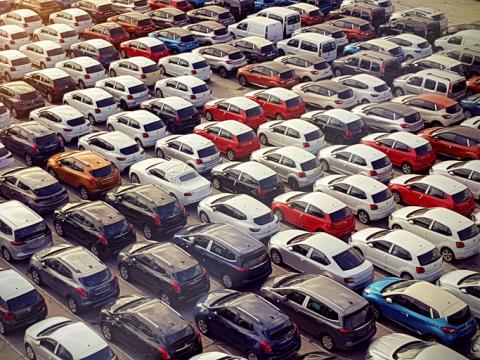
Budget 2023, announced this afternoon by Minister for Finance Paschal Donohoe, and Minister for Public Expenditure and Reform Michael McGrath contains some measures specific to motoring:
VRT
No VRT changes for cars or commercial vehicles
VAT and Excise Extensions
Extending the current excise reduction of 21 cent per litre in respect of petrol, 16 cent per litre in respect of diesel and 5.4 cent per litre in respect of Marked Gas Oil (MGO), and the 9 per cent VAT rate for electricity and gas until 28 February 2023.
Carbon Tax
The rate per tonne of carbon dioxide emitted for petrol and diesel will go up from €41 to €48.50 from 12 October as per the trajectory set out in the Finance Act 2020. This will mean that there will be an increase of just over two cent VAT inclusive per litre of petrol and diesel. Recognising the sharp cost of living challenges currently being faced by society, so the government is therefore proposing to offset this carbon tax increase with a reduction to zero of the National Oil Reserves Agency (NORA) levy. The NORA levy which is collected at a rate of 2 cent per litre (VAT exclusive) will help offset the carbon tax increase which means that the price at the pump will not go up as a result of taxes or levies.
Temporary Business Energy Support Scheme
To assist businesses with their energy cost over the winter months.
Carbon Reduction Programmes
€110m is being provided towards making the switch to electric vehicles. Specifically grant support is being provided for the:
Continuation of the purchase grant scheme for electric passenger cars, with a gradual reduction in the grant from July 2023
Continuation and expansion of the home charging infrastructure scheme to include multi-unit dwellings
Continuation of a grant scheme for taxi and hackney drivers with a gradual reduction in the grant from July 2023
Continuation of an alternatively fuelled heavy goods vehicles purchase grant scheme
Continuation of the Low Emission Vehicle Toll Incentive Scheme
Reviewing the scheme for public point charging
Delivering a new Shared Island Scheme for destination charging at sports clubs
Funding research to support the further decarbonisation of transport in Ireland
Commenting on Budget 2023, SIMI Director General Brian Cooke:
“SIMI is pleased that the Government listened to the Industry and did not increase VRT in Budget 2023. In addition, the extension of the EV car SEAI grant scheme for the first half of next year will bring more potential buyers into the Electric Vehicle project, although the signal that this grant will be reduced from July is a concern. We hope the Government can re-consider this closer to the time, as any reduction could undermine sales in what is still the early stages of the EV project.
SIMI also welcomes the announcement of the Temporary Business Energy Support Scheme for employers which we hope will mitigate against rising energy costs and help to protect employment.”
The Automobile Association has also welcomed the extension of the reduction of excise duty on fuel and the continued support for public transport pricing as announced in Budget 2023.
“There wasn’t much in the Budget for motorists specifically – the big question was whether or not there would be relief on petrol or diesel, well there was and there wasn’t in equal measures because while there was a reduction of the NORA (National Oil Reserves) Levy on fuel which amount to two cents, this was wiped out by an increase in Carbon Tax by the same amount,” said Paddy Comyn, Head of Communications for The AA. “However, there was a welcome extension of the excise relief on petrol (21 cents) and diesel (16 cents) until the 28th of February 2023. So while there are no increases, the average motorist is still paying around €2,000 per year now to fuel their car. The AA welcomes the extension of the reduction in public transport fares (of 20%) until the end of 2023, which will encourage more use of public transport, but there still remains too much variance in the quality of public transport services between urban and rural areas.”
































